 Go to main content
Go to main content
Archive Website of the UK government
Please note that this website has a UK government accesskeys system.
Main menu
Page menu
Environment and greener living

Having a greener Christmas
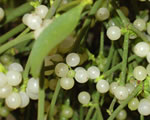
There are many things you can do before, during and after Christmas to make your celebrations greener. From recycling your tree and used batteries to sending e-cards, simple choices you make can save you money and help the planet.
Christmas trees
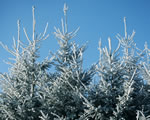
Try to buy a locally grown Christmas tree
If you’re choosing a real Christmas tree this year:
- find one that has been grown sustainably in the UK – ask your retailer or look at the list below
- ideally, try to buy a tree that has been grown locally
- if you have a garden, consider getting a living tree in a pot and with the roots still attached – you can plant it in your garden after Christmas and reuse it the following year
Artificial trees need more energy and resources to produce and generally can’t be recycled. They could be an option if you drive long distances each year to pick up a tree, or if you are unable to recycle it. Artificial trees are designed to last, so make yours greener by hanging on to it for as long as possible.
Greener gifts
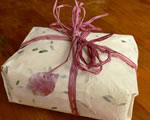
Ask for a gift receipt so unwanted presents can be exchanged
There are some simple ways you can make your gifts greener:
- if you’re buying electrical goods, try to choose those that can run off the mains and have an Energy Saving Recommended label – you’ll save the recipient energy and money too
- instead of an item, give a special experience like theatre tickets or an ethical gift like an acre of rainforest
- ask shops for a gift receipt so the gift can be exchanged if it's not wanted
- try to buy gifts made from recycled, and recyclable, materials, and look for Fairtrade alternatives
- if you’re buying for a large group of people, you could cut down the number of gifts by organising a ‘Secret Santa'; everyone puts their name in a hat and then picks out the name of one person to buy a present for, keeping to an agreed budget
- presents don’t always have to be new – charity shops have a wide range of gifts, from clothes and books to music and jewellery
Christmas cards and wrapping paper
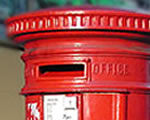
Think about sending e-cards instead of paper cards
There are some easy ways to reduce the impact of cards and paper:
- think about sending e-cards instead of paper cards
- buy recycled wrapping paper and cards – from shops that give a share of the profits to charitable causes or green initiatives
- make wrapping paper easier to reuse next year by tying presents with ribbon or string instead of using sticky tape
- gift tags can be made from old greetings cards, and any kind of unusual paper – or even old magazines and newspapers – can be used to wrap gifts
Decorations and lights

LEDs are much more efficient than traditional lights
Natural decorations like holly and mistletoe will give your home a traditional festive feel, and can be composted afterwards. You could also:
- choose the Fairtrade option for chocolate Christmas tree decorations or advent calendars
- buy Christmas lights made with light-emitting diodes (LEDs), which last longer and are up to 90 per cent more efficient than traditional lights
Christmas food and drink

Look for the Marine Stewardship Council logo when buying fish
Save money and waste less food for a greener Christmas, by:
- getting portion sizes right so you only buy the food you need
- trying to buy locally in-season food – in December, in-season foods include sprouts, pumpkin, parsnips and red cabbage
- looking for food labels like organic, LEAF or MSC, which tell you food has been produced with consideration for the environment
- using any leftovers you can
- composting vegetable peelings, tea bags and even egg boxes
Saving energy at Christmas
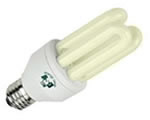
Turn unnecessary lights off at Christmas
There are easy ways to cut your energy use, and your fuel bills, at Christmas:
- turn your Christmas lights off during the day and when you go to bed
- fully load your dishwasher with the Christmas pots and pans before switching it on - half-loads use much more than half the energy and water of full loads
- the normal green ‘rules’ for energy saving apply at Christmas: turn unnecessary lights off, don’t leave appliances on standby – and ask Santa for some low-energy light bulbs
Recycling after Christmas
Recycling is an excellent way of saving energy and conserving the environment:
- if you can’t replant your Christmas tree, check if your local council will recycle it
- pass unwanted gifts on to a charity shop or an organisation like Freecycle
- recycle your Christmas cards - schemes like The Woodland Trust’s use the proceeds to plant thousands of trees
- don’t forget to recycle wrapping paper, envelopes, packaging and even stamps (ask your favourite charity or take them to your nearest Oxfam Shop)
- recycle used batteries – many councils accept batteries along with other household recycling, or take them to your local waste and recycling centre

 Facebook
Facebook Twitter
Twitter StumbleUpon
StumbleUpon Delicious
Delicious Reddit
Reddit